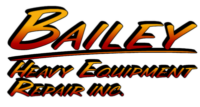The Importance of Operator Training and Certification for Heavy Equipment
The Importance of Operator Training and Certification for Heavy Equipment
Operating heavy equipment requires a high level of skill and expertise. The proper training and certification of operators are crucial for ensuring safety, increasing productivity, and minimizing the risk of accidents. In this blog post, we will explore the importance of operator training and certification for heavy equipment.
Enhanced Safety
One of the primary reasons why operator training and certification are crucial is safety. Heavy equipment can be dangerous, and accidents can result in severe injuries or even fatalities. Proper training equips operators with the knowledge and skills to handle heavy equipment safely, including understanding operational controls, performing pre-operation inspections, and practicing safe operating techniques.
Certification also ensures that operators are aware of safety guidelines, procedures, and regulations specific to the type of equipment they operate. This knowledge helps prevent accidents by understanding potential hazards, such as overhead power lines, unstable terrain, or hazardous materials.
Increased Productivity
Properly trained and certified operators are more efficient and productive. They possess the necessary skills to operate heavy equipment effectively, leading to improved job performance. A certified operator can complete tasks more efficiently, reducing downtime and maximizing productivity. They have a deeper understanding of the machine’s capabilities, allowing them to work at optimal speeds and handle different operating conditions.
Operators who receive advanced training can also gain additional skills in specialty areas, such as operating attachments or performing specific tasks. These added skills contribute to enhanced productivity and help businesses meet project deadlines more effectively.
Reduced Equipment Damage
Inadequate training in operating heavy equipment can lead to improper use and unnecessary equipment damage. Operators who lack sufficient training and experience may misuse equipment controls, overload machines, or operate them inappropriately. Such actions can result in excessive wear and tear, mechanical failures, and costly repairs.
Certified operators understand the limits and capabilities of the equipment they operate. They follow proper maintenance guidelines, conduct inspections, and ensure regular servicing and repairs. This knowledge and commitment to equipment care help minimize the risk of damage and prolong the lifespan of heavy machinery.
In Compliance with Regulatory Standards
Various regulatory bodies require operators of heavy equipment to be properly trained and certified for compliance purposes. Occupational Health and Safety Administration (OSHA) mandates that employers provide training to ensure the safe operation of heavy equipment. OSHA’s guidelines focus on teaching operators about hazards, safe operating procedures, and preventive measures to protect themselves and others on the worksite.
Furthermore, certain industries, such as construction or mining, might have specific regulatory requirements for operator training and certification. Adhering to these regulations not only ensures compliance but also provides legal protection for businesses in case of accidents or incidents.
Improved Risk Management
Investing in operator training and certification is an essential risk management strategy for businesses. Certified operators have a greater understanding of potential risks associated with heavy equipment operation and receive training on how to mitigate those risks. They are knowledgeable about emergency procedures, fall protection, fire prevention, and other safety measures.
In the event of an accident, properly trained and certified operators can effectively manage the situation, minimizing injuries, property damage, and potential legal liabilities. This demonstrates the importance of operator training as an integral part of any comprehensive risk management program.
Positive Brand Reputation
Hiring trained and certified operators reflects positively on a company’s brand reputation. Clients, stakeholders, and project owners value businesses that prioritize safety, professionalism, and quality workmanship. Demonstrating a commitment to operator training and certification enhances the reputation of the business, increasing its credibility and marketability.
Companies that invest in training and certification demonstrate their dedication to safety, employee development, and delivering high-quality services. This commitment can attract new clients, lead to repeat business, and create a competitive edge in the industry.
Conclusion
Operator training and certification are vital for the safe and efficient operation of heavy equipment. Proper training ensures the safety of operators, prevents accidents, reduces equipment damage, and increases productivity. Certification ensures compliance with regulatory standards and contributes to effective risk management. Investing in operator training and certification not only protects employees and equipment but also enhances brand reputation and establishes a competitive advantage for businesses in the heavy equipment industry.
Got questions about operator training and certification? Let us help! Contact us today to learn more!
